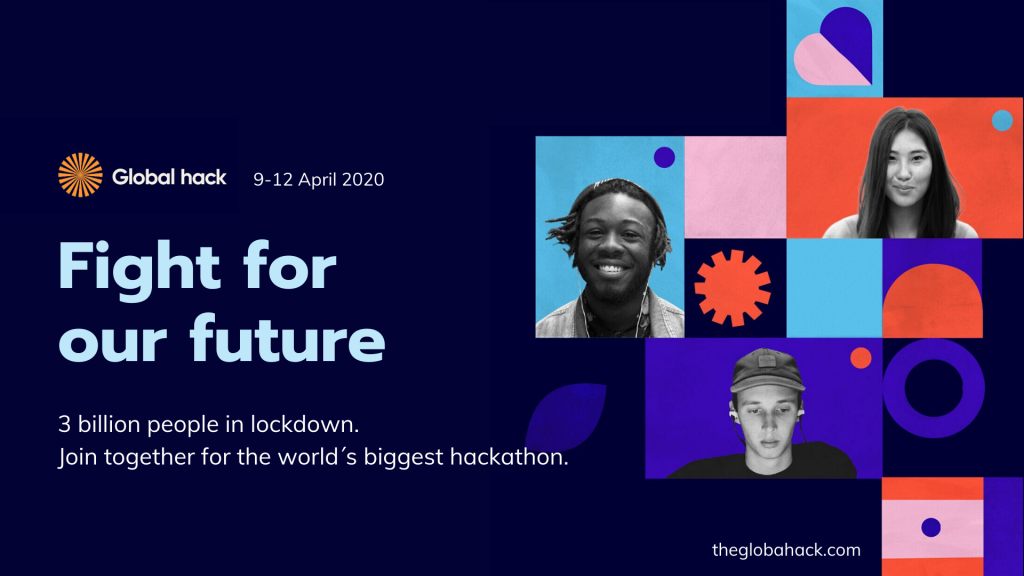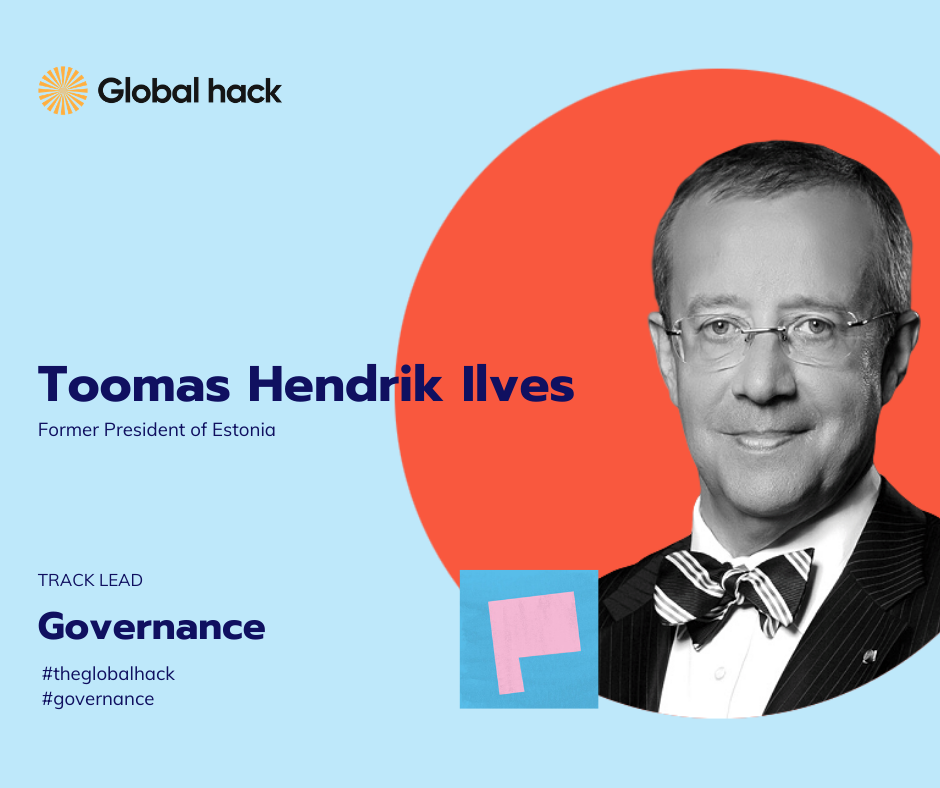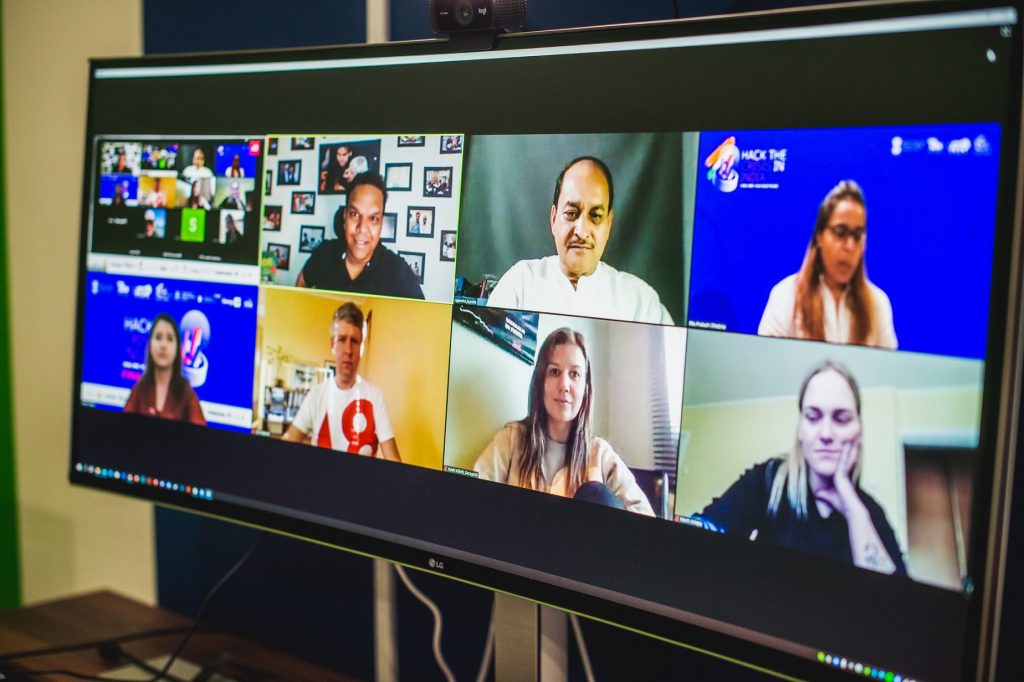At the initiative of the Estonian startup community, over a million participants across the world are expected to attend an online hackathon, the Global Hack, from 9-12 April; the goal of the four-day tech marathon is to create solutions that help people stop the spread of the coronavirus and stimulate the economy.
Nearly half of the world is on lockdown. We could sit at home now and wait for it all to be over. Or we could be part of a global community who takes action and wants to tackle the current crisis and design the post-virus world. This is where a global online hackathon, the Global Hack, initiated in Estonia, comes in. The hackathon, taking place from 9-12 April, was designed to share and develop ideas for urgently needed solutions.
Using technology to resolve the crisis
The core initiative comes from the teams behind Estonian startup organisations Garage48 and Accelerate Estonia, and Guaana, a community-based platform to run online innovation and research challenges. They organised the very first hackathon, “Hack the Crisis”, from 13-15 March in Estonia. It took place with more than 1,300 people across 15 time zones, and resulted in more than 30 ideas of which eight have been activated already.
The world took notice and only a week later, this small test in Estonia slopped over to other countries. As of today, regional hacks have taken place in almost 50 countries, from India to Georgia to Brazil. And this is just the beginning.
The Estonian president, Kersti Kaljulaid, has also thrown her support behind this event – and calls everyone to join the Global Hack. “Yes, we can resolve this crisis. And we can use technology to resolve it,” she said in a video message. “You are all invited to enjoy the atmosphere of hacking the crisis, the atmosphere of getting things done. The very Estonian atmosphere, if I may tell you so. To find a problem, immediately find a solution, hack it, and then go ahead into the future. Using this what has been found out today, tomorrow and, if necessary, on the grand scale – global.”

Building the new normal
The European Commission will support this global hackathon and provide up to €75,000 to the Global Hack project, from which €60,000 will be for prize money to the winning teams. The commission will also provide input for government challenges to be hacked, such as start-ups, small businesses and digital health system. Also, the commission will provide coaching to bring viable solutions where they are needed.
Talent is everywhere, and the team behind the Global Hack wants to unleash it in every corner of the world.
Kai Isand, the head organiser of the Global Hack, believes this event is the best example of the startup mindset and how to act quickly when facing big challenges. “This is our call to hack the crisis – not only to brainstorm solutions to prevent and stop the spreading of a highly-infectious disease but to think about how our lives will be different after this. To discuss how it will change the way we move, build, learn and connect. To see new opportunities. To build the new normal,” she said. “By now, almost 50 countries have organised their own local hackathons. The next step for the global movement is to come together in a unified hackathon event where teams will create projects that have a strong international socio-economic impact and create the needed rapid change.”

The biggest hackathon uniting humanity
The hackathon has great and renowned mentors and leaders, such as Steve Jurvetson, a board member of SpaceX and Tesla; Garry Kasparov, the Russian chess grandmaster and former world chess champion; Toomas Hendrik Ilves, a former Estonian president; Carmen Kass, an Estonian supermodel; and Reid Hoffman, a co-founder of LinkedIn.
“The crisis is far from over and the fight is real, but the future is now. We can battle the problems of the immediate crisis with solutions that also increase our longer-term resilience. We should consider how we support our changing relationships; a new economy; poor health care; and strengthening the arts. We must also develop effective solutions to respond to future pandemics and other crises, so we never have to hide again,” Ilves said.
“Approaching half of humanity is under lockdown. Online, with no borders, tech activists are building solutions in an epic rapid prototyping hackathon. It will be the biggest hackathon held, uniting humanity with purpose online at a time we are being separated physically. This is a unique time when the whole world is fighting the same problem together. If we move fast, the Global Hack can relieve a lot of immediate pain people are suffering as well as sustained social and economic benefits,” Ilves added.

The whole idea of this hackathon is simple. You can share your ideas or find inspiring ideas in the Slack community of the Global Hack, and find your teammates to work on an idea. Then, register your team and start hacking.
The hackathon offers 12 tracks to work on. These tracks are inspired by the UN sustainability goals and cover most of our future challenges. The tracks are Arts and Creativity, Economy, Crisis Response, Education, Empowerment, Environment, Health and Wellness, Governance, Media and Entertainment, Mental Health, Solidarity in Action and Work.
The hackathon starts on 9 April and ends on 11 April. On 12 April, the best ideas will be awarded. If you would like to join, you can register your idea and join the movement and also join the Facebook community.
Cover: As of today, regional hacks have already taken place in almost 50 countries, from India to Georgia to Brazil. Photo: participants and mentors of the hackathon in India communicating via Zoom (courtesy of Garage48).

